Repository History
Explore all analyzed open source repositories
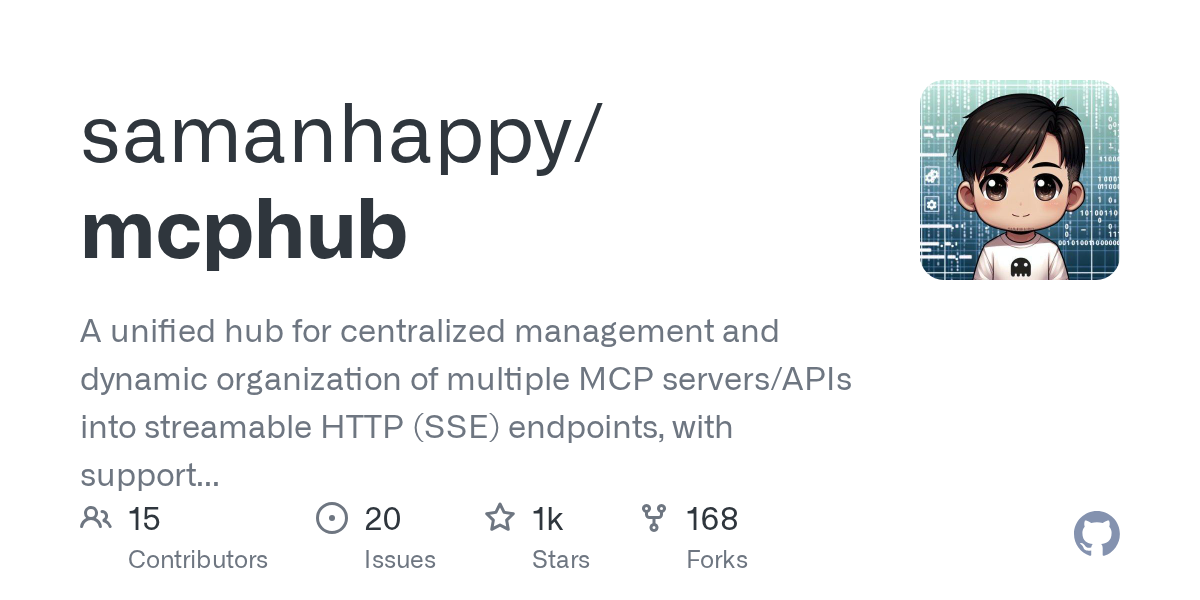
MCPHub: Unified Management and Dynamic Routing for MCP Servers
MCPHub is a powerful open-source platform designed for centralized management and dynamic organization of multiple Model Context Protocol (MCP) servers and APIs. It transforms these services into streamable HTTP (SSE) endpoints, offering flexible routing strategies including intelligent semantic routing and group-based access. This solution simplifies the deployment and scaling of AI-driven applications by providing a unified interface and robust control features.
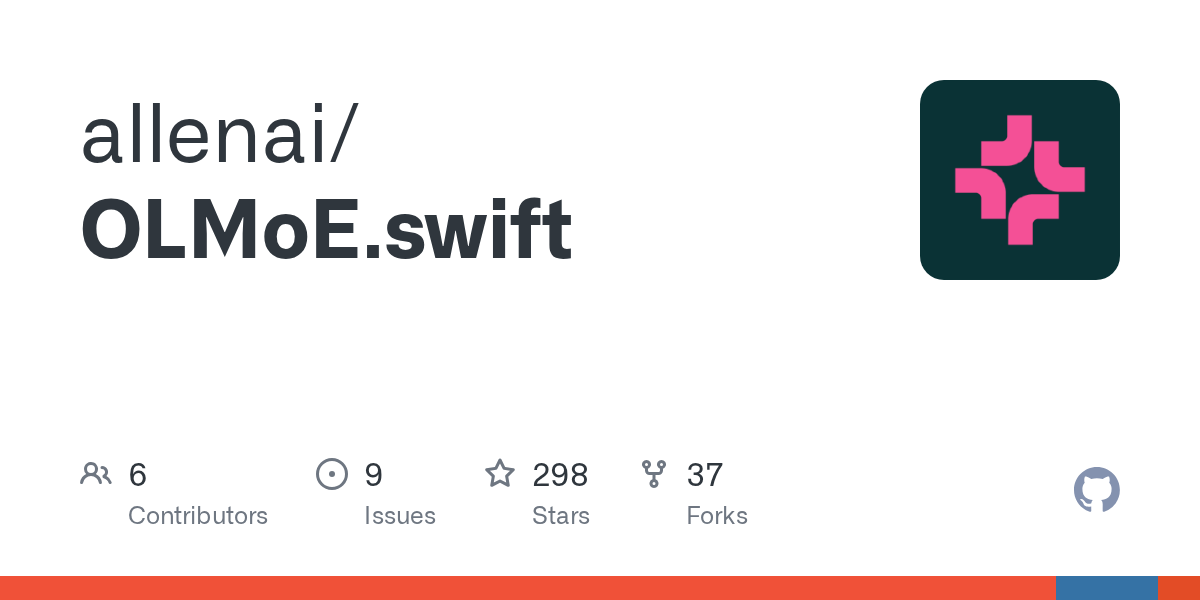
OLMoE.swift: Private, Offline AI Experience on iOS and macOS
OLMoE.swift provides a unique, privacy-focused AI experience by running large language models directly on your device. This Swift-based application ensures your queries and data remain private, operating entirely offline without an internet connection. It offers a robust solution for local AI inference on iOS and macOS, with integration options for Hugging Face.
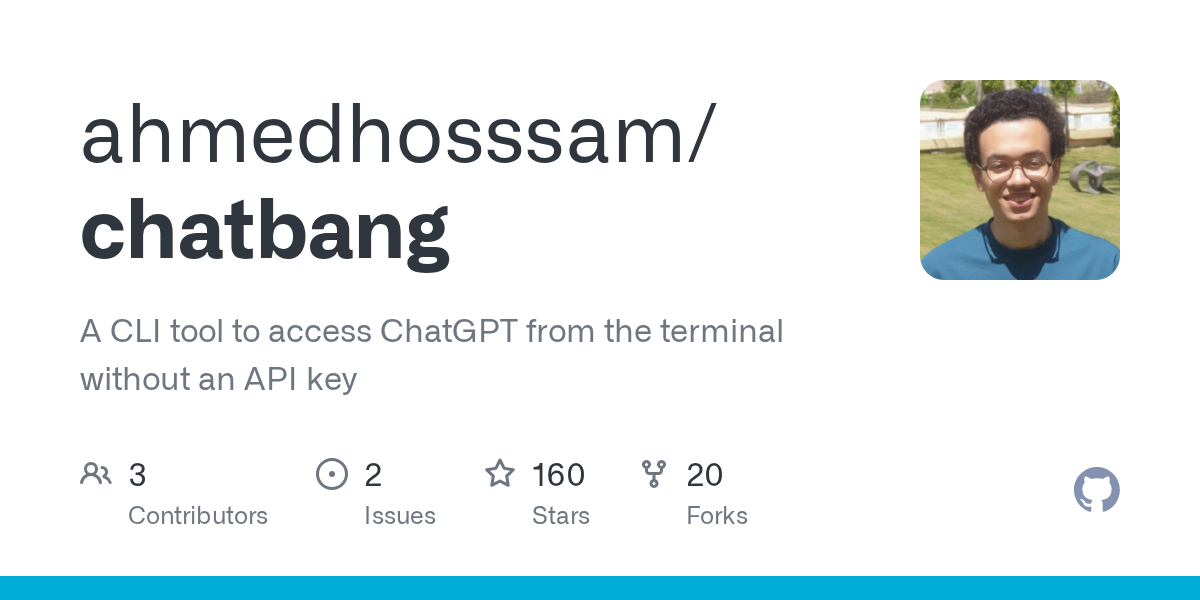
Chatbang: Access ChatGPT from Your Terminal Without an API Key
Chatbang is a powerful CLI tool written in Go that allows users to interact with ChatGPT directly from their terminal. It eliminates the need for an API key, providing a convenient and efficient way to leverage AI conversations. This open-source project simplifies access to AI, making it readily available for command-line enthusiasts.
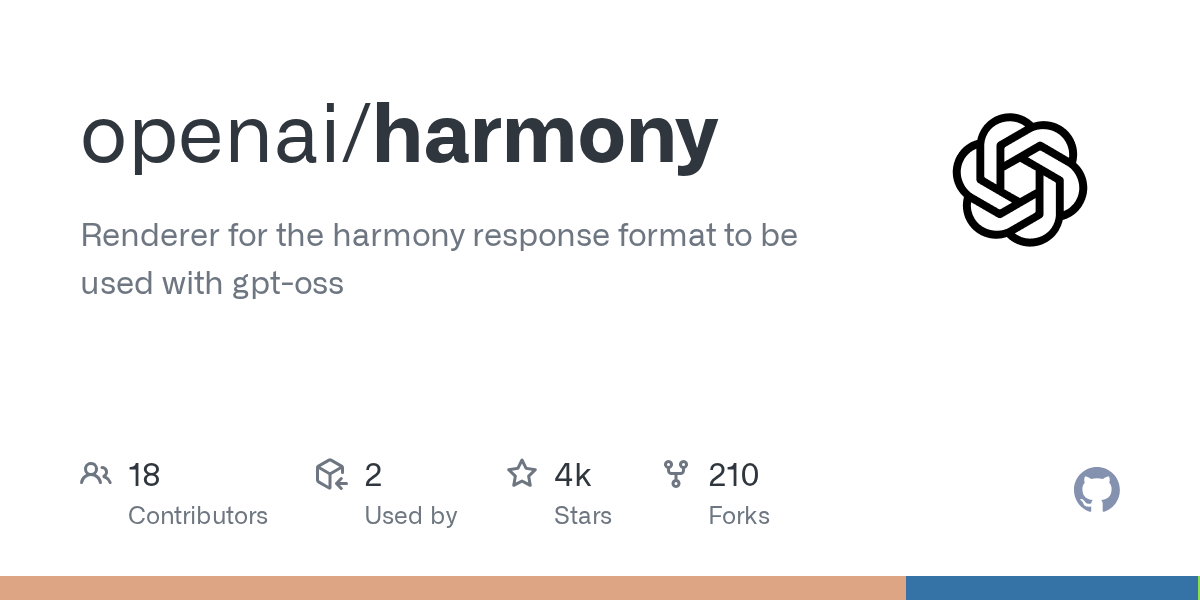
Harmony: OpenAI's Renderer for GPT-OSS Response Format
Harmony is OpenAI's dedicated renderer for its `harmony` response format, specifically designed for use with `gpt-oss` open-weight models. This library provides a robust solution for defining conversation structures, generating reasoning output, and structuring function calls, ensuring consistent and efficient token-sequence handling for both rendering and parsing. It offers first-class support for both Python and Rust development.
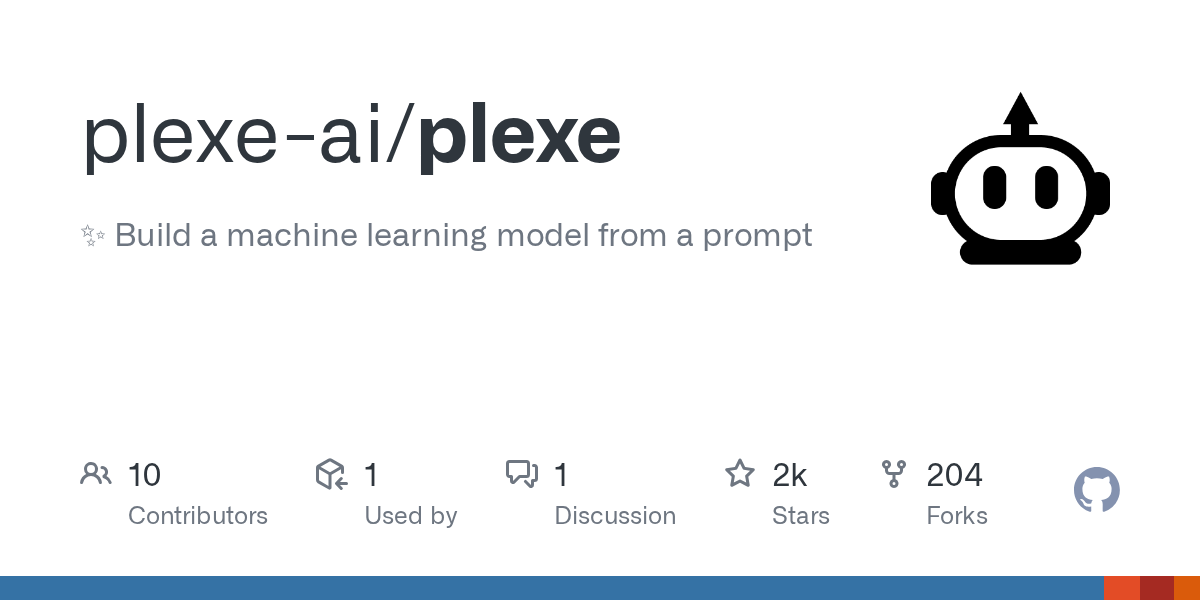
Plexe: Build Machine Learning Models from Natural Language Prompts
Plexe is an innovative Python library that empowers developers to build machine learning models using natural language descriptions. It automates the entire model creation process, from intent to deployment, through an intelligent multi-agent architecture. This allows for rapid development and experimentation, making ML accessible and efficient.
gpt-engineer: AI-Powered CLI for Code Generation and Experimentation
gpt-engineer is a powerful CLI platform designed for experimenting with AI-driven code generation. It enables users to specify software requirements in natural language, then observes as an AI writes, executes, and refines the code. This tool serves as a precursor to lovable.dev, offering robust capabilities for both new project creation and existing code improvement.

Fluxgym: Simple FLUX LoRA Training UI with Low VRAM Support
Fluxgym offers a user-friendly web interface for training FLUX LoRA models, specifically designed to support systems with low VRAM, such as 12GB, 16GB, and 20GB GPUs. It combines the simplicity of a Gradio UI, forked from AI-Toolkit, with the powerful and flexible training capabilities of Kohya sd-scripts. This tool allows users to easily train custom LoRAs, including advanced features like automatic sample image generation and direct publishing to Hugging Face.
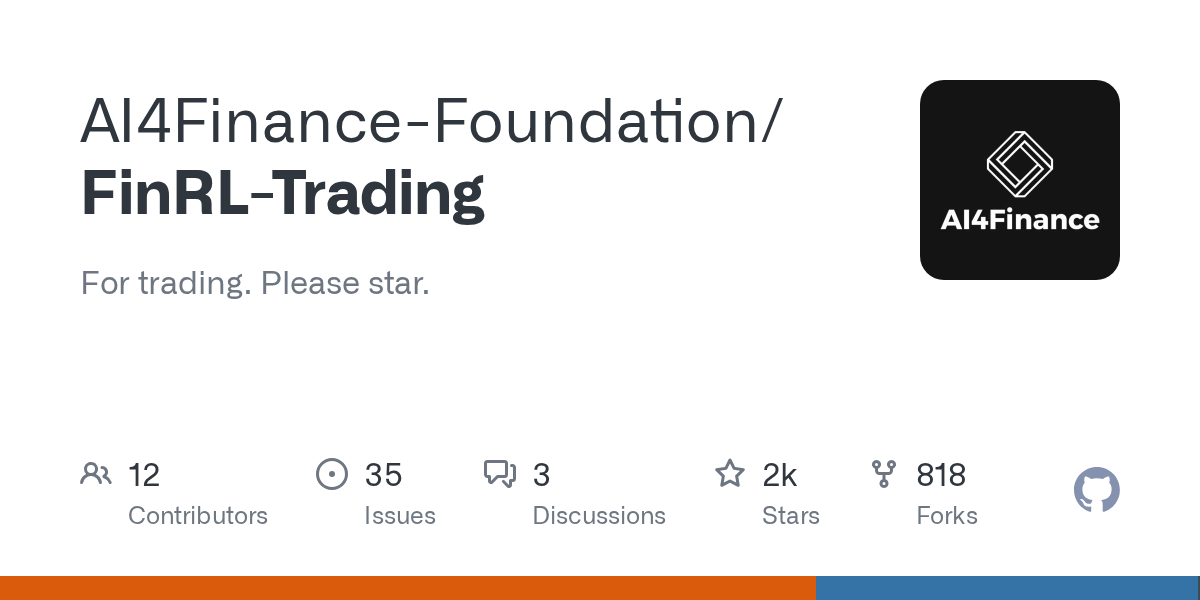
FinRL-Trading: Deep Reinforcement Learning for Automated Stock Trading
FinRL-Trading is a powerful GitHub repository built upon the FinRL framework, designed to develop advanced AI stock-selection and trading strategies. It leverages both Supervised Learning and Deep Reinforcement Learning to create robust models, with capabilities extending to deployment on online trading platforms. This project offers a comprehensive approach to algorithmic trading, from data processing to live paper trading.
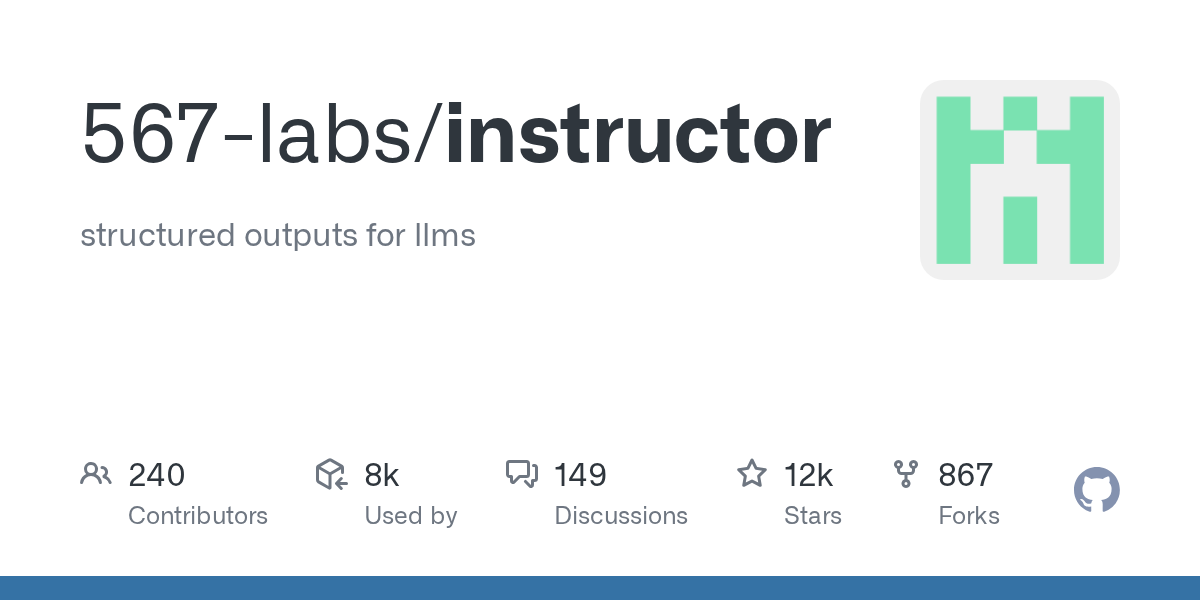
Instructor: Structured Outputs for LLMs with Pydantic and Python
Instructor is a powerful Python library that simplifies extracting structured data from Large Language Models (LLMs). It integrates Pydantic for robust validation, type safety, and IDE support, eliminating the need for manual JSON parsing, error handling, and retries. This tool provides a streamlined and reliable way to get structured outputs from any LLM.
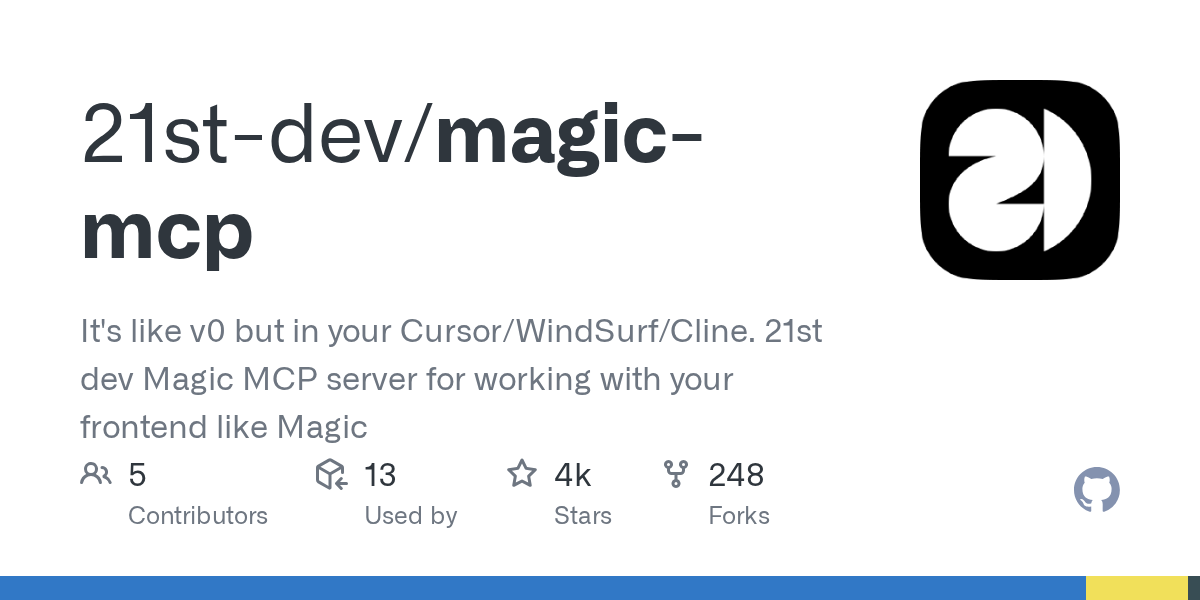
magic-mcp: AI-Powered UI Component Generation for Your IDEs
magic-mcp, or Magic Component Platform, is an AI-driven tool designed to help developers create modern UI components instantly using natural language descriptions. It integrates seamlessly with popular IDEs like Cursor, Windsurf, and VS Code, streamlining the UI development workflow. This platform leverages AI to build polished components inspired by 21st.dev's library, enhancing productivity and consistency.
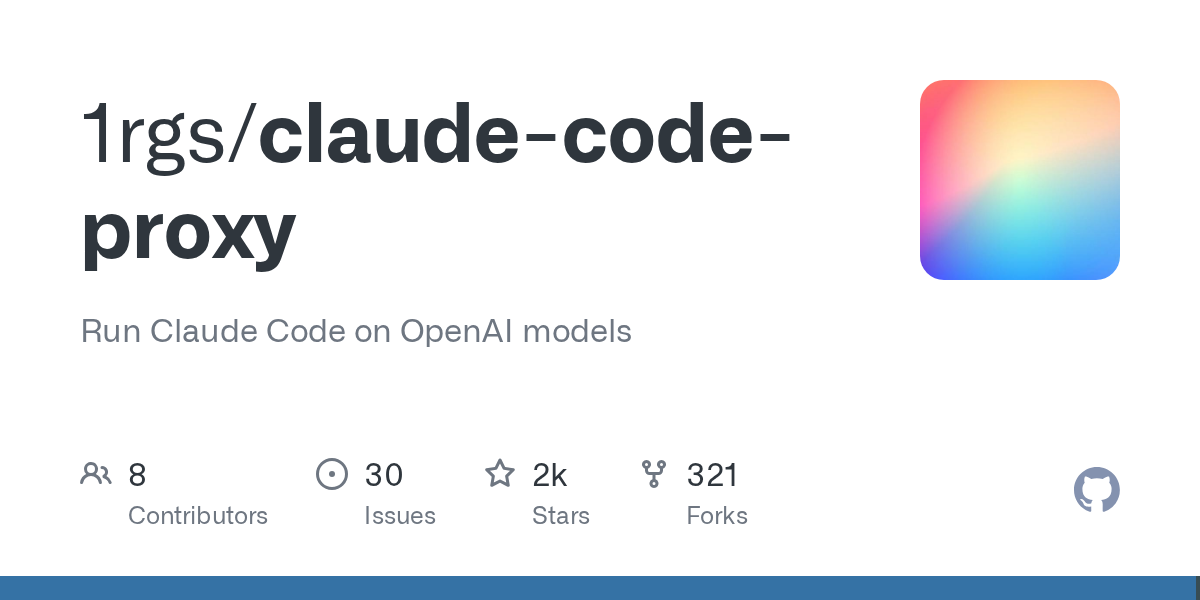
claude-code-proxy: Use Anthropic Clients with OpenAI and Gemini Models
`claude-code-proxy` is a powerful proxy server that allows developers to use Anthropic clients, such as Claude Code, with various backend models including OpenAI, Gemini, or even Anthropic's own models. It provides seamless translation of API requests and responses, offering flexibility and control over your AI model choices. This tool is ideal for integrating different LLM providers without modifying existing Anthropic client code.
Rig: Build Modular and Scalable LLM Applications in Rust
Rig is a powerful Rust library designed for building modular, scalable, and ergonomic LLM-powered applications. It offers extensive features, including agentic workflows, compatibility with over 20 model providers, and seamless integration with more than 10 vector stores. Developers can leverage Rig to create robust generative AI solutions with minimal boilerplate.